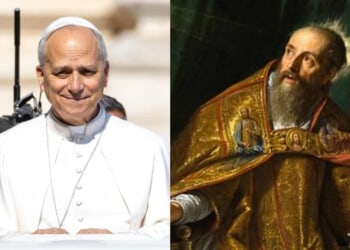Few career choices are as perilous as the decision to be a human rights lawyer in communist China. Among the few brave men to hold this title is Gao Zhisheng, who disappeared eight years ago today.
Bob Fu, a pastor who counted Gao among his friends and now leads the anti-communist organization China Aid, told The American Spectator that “[T]his August marks eight unbearable years since the Chinese Communist Party forcibly disappeared renowned human rights lawyer China’s conscience Gao Zhisheng… [T]his is not just the anniversary of silence — it is a continued crime.”
Fu fled China to have a family and church beyond the bounds of the one-child policy and state religious controls. He was later instrumental in persuading the Bush administration to give Gao’s family asylum in 2009. Today, his organization “calls on the Trump Administration and all freedom-loving nations to apply maximum diplomatic and economic pressure on the Xi Jinping regime to immediately disclose the truth: Is Gao Zhisheng still alive?”
How One Man Won Against Chinese Communism
Gao entered the practice of law after time spent as a coal miner, a good vendor, and a Chinese soldier, responding to a demand for attorneys of any sort as China rapidly developed after entering the global market. Passing the bar in 1995, Gao realized that few lawyers were brave enough to sue government agencies, a right only extended to Chinese citizens in 1989.
Against all odds, Gao began winning these cases. Children affected by medical malpractice were compensated, and judges forced the Communist Party to compensate landowners whose property had been seized.
Cryptic comments from state agencies had already begun to trickle in, but Gao was not yet a threat to the government of significant magnitude. By 2005, however, things had changed. Beijing courts were ordered to ignore the written law and follow the Communist Party in a series of cases targeting the large-scale seizure of urban land for the 2008 Beijing Olympics and rural farmland for state usage.
Gao would have none of it, for the first time publicly speaking against communist political leadership as being behind “brazen murderous schemes” and eventually committing social suicide by resigning his membership in the Chinese Communist Party.
Having gone from annoyance to threat, Gao was soon targeted directly. Once declared by a state ranking one of the “ten best lawyers in China,” his law license was suspended and his firm was forcefully shut down. Gao was then imprisoned for “subversion” in 2005.
The American Spectator spoke to Chen Guangcheng about Gao’s career. Chen, who is blind, taught himself the law and began winning cases challenging China’s one-child policy at the same time as Gao. His activism put him on the cover of Newsweek in 2002 as the face of the “barefoot lawyer” movement of self-taught attorneys — and also put him in prison to face torture.
Gao Zhisheng worked to free Chen, and they developed a friendship. Chen told The American Spectator that Gao is the “number one human rights lawyer in China.” In Chen’s eyes, this title, earned 20 years ago, remains with Gao’s fate uncertain.
While imprisoned, Gao secretly authored a set of memoirs denouncing the government and detailing extensive torture, from beatings to the use of pins to draw blood. It was during this period that he converted to Christianity, inspired by clients he represented who were prosecuted for maintaining religious organizations outside of government control.
The cases were to be his last foray into the spotlight. Encouraging one “house church” to sue rather than close, Gao declared, “I can’t guarantee that you will win the lawsuit, in fact, you will almost certainly lose… but I warn you that if you are too timid to confront their barbaric behavior, you will be completely defeated.”
Gao disappeared in 2009 before the Chinese government revealed that they had arrested and sentenced him to three years in prison, followed by an undetermined period under house arrest. Though his whereabouts remained tracked, he was unable to contact journalists. Communist authorities monitored communication with his family. On August 13 of 2017, reports indicated that he had fled house arrest.
The freedom was fleeting. Chinese authorities announced his recapture — and nothing else. Since 2017, there has been no word on where Gao is being held or even if he remains alive at all. Though short-term disappearances at the hands of Chinese officials occurred eight times over 12 years, the 2017 disappearance appears to be final.
“There Can Be No Freedom” Until He is Released
Gao’s widow and two children have succeeded in seeking refuge in the United States and risk their lives if they return to their homeland to try to seek any information on their husband, father, and human rights activist. His wife has pleaded with communist authorities to “see him if he’s alive, or see his corpse if he’s dead,” to no avail.
Chinese communist authorities have overseen the disappearance of hundreds of their opponents. The most high-profile is likely the Panchen Lama, the second most revered figure in Tibetan Buddhism. Thirty years have passed since he and his family disappeared while in China. Chinese authorities have refused to reveal his whereabouts and appointed their own puppet Panchen Lama in his place.
Gao’s case remains of interest to the Tom Loman Human Rights Commission at the House of Representatives, but has gained particular attention since Republicans retook the House in 2022. Hearings were held soon afterwards under the auspices of Texas Republican Michael McCaul. Last week, New Jersey Republican Chris Smith announced he was introducing the Freedom for Gao Zhisheng Act.
In a statement given to The American Spectator, Bob Fu, president of China Aid, called on “the United States Congress to swiftly pass the bipartisan Gao Zhisheng Act and send a clear message that America will not remain silent in the face of such inhumanity.” Fu added that recognizing Gao honors “the thousands of others persecuted for defending human dignity and the rule of law in China.”
With a meeting between President Donald Trump and Chinese leader Xi Jinping likely on the horizon, Chen Guangsheng told The American Spectator that he would like to see the administration “raise Gao’s case in any negotiations with China.” He emphasized that “there can be no freedom or rule of law in China until he [Gao] is released.”
Director of the Human Rights Center William Saunders told The American Spectator that Americans can best advocate for human rights and religious freedom in China by “petitioning their representatives” and the Trump Administration to follow Chen’s advice. He emphasized that “the human rights lawyers were simply trying to enforce the laws China has,” though these laws are almost never followed.
In 2019, Gao’s widow received a letter from the administration emphasizing Trump’s commitment to human rights in China. As the administration deals with the world’s largest dictatorship once more, the fate of those courageous enough to fight back remains in the balance.
READ MORE by Shiv Parihar:





![Gavin Newsom Threatens to 'Punch These Sons of B*thces in the Mouth' [WATCH]](https://www.right2024.com/wp-content/uploads/2025/08/Gavin-Newsom-Threatens-to-Punch-These-Sons-of-Bthces-in-350x250.jpg)
![ICE Arrests Illegal Alien Influencer During Her Livestream in Los Angeles: ‘You Bet We Did’ [WATCH]](https://www.right2024.com/wp-content/uploads/2025/08/ICE-Arrests-Illegal-Alien-Influencer-During-Her-Livestream-in-Los-350x250.jpg)








